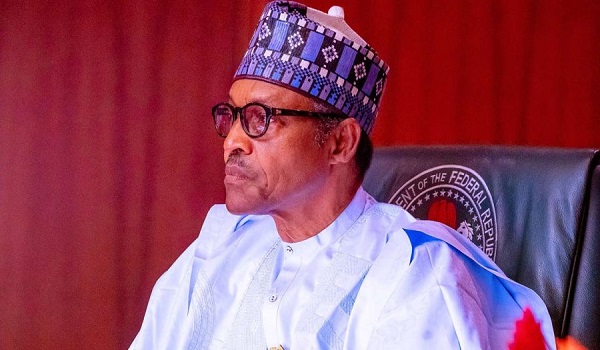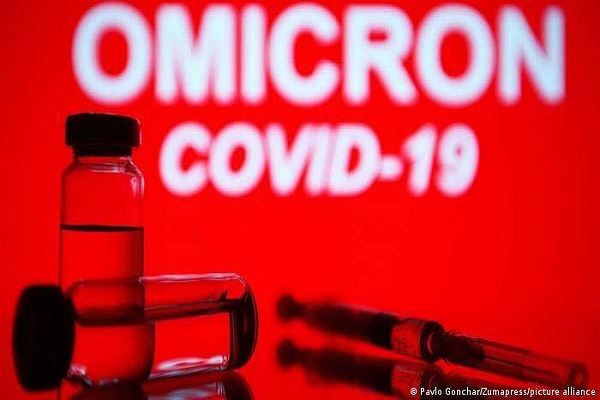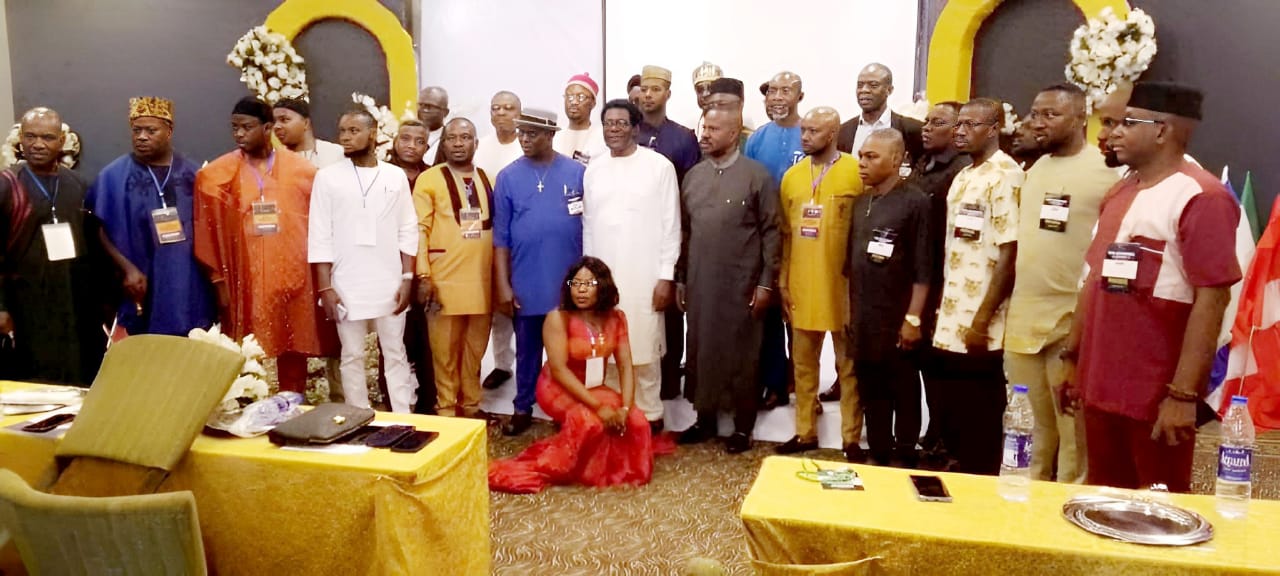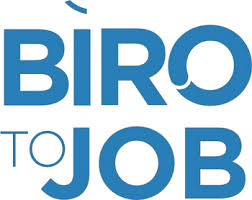Pressure Mounts On Buhari To Sign Electoral Act – Analysis By The Nation

The amended Electoral Act bill 2021 has been on the table of President Muhammadu Buhari since November 19. Indications are that the Presidency and the National Assembly may be heading for a collision course. The two arms have been working in synergy since inception more than two years ago. If after 30 days the president refuses to sign the bill, the National Assembly can recall it and pass it into law by two-thirds majority votes of the two chambers. Deputy Political Editor RAYMOND MORDI and Assistant Editor EMMANUEL BADEJO sought the views of some stakeholders on the matter
THERE are growing fears that President Muhammadu Buhari may reject efforts to amend the Electoral Act Amendment Bill, which was passed by the National Assembly on November 9, 2021. The bill is currently on his table. Among the key provisions of the amended law are the electronic transmission of results and the adoption of the direct primary by all political parties.
All stakeholders seem to have accepted the idea of electronic transmission of results, but the compulsory adoption of the direct primary by political parties has continued to generate controversy. Many governors favour the indirect system where delegates are required to elect the candidates. The governors are insisting that each party should be allowed to choose the system it prefers. Indications are that the opposition to the direct mode of primary for political parties by state governors may influence the president not to sign the bill and consequently it may suffer the same fate as it did in the last assembly.
Before the last general elections, efforts of the Eighth Assembly under the leadership of Senator Bukola Saraki and Yakubu Dogara to get the amendment act signed into law was a fruitless one, as President Buhari declined his assent three consecutive times. His first rejection was in March 2018 where he said the proposed law would usurp the constitutional powers of INEC to decide on election matters. In September 2018, Buhari turned down the bill for the second time, asking the National Assembly to revise some clauses. In December when the bill was rejected for the third time, the president said signing it into law could “create uncertainty and confusion” in the forthcoming 2019 elections.
The president was severely criticized by a cross-section of Nigerians for not signing the bill in the interest of the people. Observers had said at the time that the major reason President Buhari declined his assent was because some of the provisions of the bill, particularly the change in the sequence of the elections may jeopardize his second term bid. But, as part of his bid to regain the trust of the people, he had indicated while inaugurating the APC presidential campaign council in Abuja, in January 2019 that he will leave a legacy of credible elections in Nigeria. Buhari added at the time that credible elections are the foundation of political stability and peace in any nation.
President Buhari, who received the current bill on November 19, has until December 19 to sign it or communicate to the National Assembly his feelings and comments about the bill. He has since written a letter to the chairman of the Independent National Electoral Commission (INEC), Prof. Mahmoud Yakubu, seeking comments from the commission over the amendment bill. INEC has responded to the president’s letter, saying it is satisfied with the amended Electoral Act.
Presidency sources were quoted as saying that the bill has provisions that will. make the electoral process stronger and more credible. One of the sources said: “The commission specifically mentioned the electronic transmission of results and the early nomination of candidates for elections. INEC also told the president that it is good that the commission will now have the power to review election results announced by its officials under duress.”
Over 70 civil society organisations (CSOs) are also said to be mounting pressure on President Buhari to sign the bill. If passed into law, the CSOs are of the view that the bill would facilitate early preparations and efficient election administration of the 2023 general election, which is a little over a year away. The CSOs include Yiaga Africa, the International Press Centre, the Centre for Citizens with Disability, the Albino Foundation, the CLEEN Foundation, the Institute for Media and Society, the Nigerian Women Trust Fund and the Premium Times Centre for Investigative Journalism.
Human rights activist, Dr Naseer Kura said signing the bill into law by the president is in the interest of Nigerians because it will provide the impetus for a democratic rejuvenation. He said: “It is in the best interest of the political parties and the Nigerian people because it would strengthen the electoral process by getting more people involved in the selection process of persons that would emerge as their leaders.”
He said those kicking against the idea of the direct primary based on the cost implication are wrong because irrespective of the method employed for the conduct of primaries, every election cycle involves money. He said: “Every four years, a humongous amount of money is being spent on our elections and hardly do we conduct a flawless election; that has not stopped the government from saying, no, we haven’t reached a level of perfection.
“I believe that whatever amount of money that is spent to ensure that we have an electoral act that would empower the Nigerian people and pave the way for real democracy is money well spent. Governance is about service and not about profit-making and cost-benefit analysis in monetary terms.”
Kura who is the executive director, Basic Rights Action said judging from the way President Buhari is about the issue of signing the current Electoral Act amendment bill; it is obvious he is not interested in signing it. He said: “I don’t think Buhari is interested in signing the bill; if it were something he is interested in doing, the zeal with which he would grab it and append his signature would have been obvious to everyone to see. Judging by the way he is going about it, I don’t think he is interested in signing it and this is against the wishes of the Nigerian people.
He said Buhari canvassed for direct primary when the defunct Congress for Progressive Change (CPC) was formed before the 2011 general election. He said: “Direct primary was the basis of the party’s campaign. The party had insisted that all the candidates who intends to fly its flag during the 2011 general elections must go through that process. So, it would be inconceivable for the president to turn around and say it is too expensive, after selling the idea to Nigerians in 2011 that it is the best way to select candidates. Who is going to bear the cost? It is the Nigerian people and the same people have indicated that that is what they want.”
Elder statesman, Alhaji Tanko Yakasai said the widely-held view that the direct primary would cost a lot of money is wrong. His words: “It would cost money of course but not as many people are thinking. For instance, instead of relying on the registers of political parties, the INEC register of voters can be used and everybody would come with their permanent voter’s card (PVC). That would solve the problem of…
“Secondly, steps should be taken to limit the number of participants in the primary. This is because, in the country, many political parties know that they are just making up the numbers because they cannot win, but they still go ahead and thereby make the process unwieldy. This would ensure that only political parties that have the wherewithal to conduct such primaries in the various constituencies would embark on it. By the time that is done, it would eliminate all these mushroom parties that contest for contesting sake.
“What is worrying us is the corruption in the electoral system. As long as we continue to elect candidates to vie for elective positions through the indirect mode of primary, corruption would continue to mar the electoral system. The advantage of the direct primary is that it institutionalizes democracy in the country because the more people that participate in the process, the more democratic it becomes.”
Yakasai, 96, said the direct primary would eliminate the tendency of aspirants to bribe delegates. He added: “With that alone, corruption would have been drastically reduced. If people use money to ‘buy’ their elections, it is only natural that they would want to recoup their investments once they get to power. We cannot do away with corruption in elections in Nigeria unless we go for the direct primary.”
He said members of the National Assembly can muster the political will to veto the bill if the president refuses to sign it, “because they can garner majority votes to achieve that goal”. This, he added, is because most of them have the governors to contend with under the indirect mode of primary, to return to the National Assembly.
A chieftain of the All Progressives Congress (APC) in Abia State, Chief Chekwas Okorie has urged President Buhari will sign the bill into law. He said the benefits of direct primary are immense. This, he said, includes the deepening of the country’s democracy by involving everybody interested in participating in leadership recruitment at that level. He said: “First, it will give members of political parties a say in terms of electing the candidates of the party.
“But, based on what we have witnessed in this regard so far, the parties must also guarantee the transparency of the exercise. Secondly, every evil of indirect primary is corrected by direct primary. The way indirect primary has been implemented so far during this political dispensation has always resulted in the imposition of candidates and this has hampered the quality of leadership recruitment in the democratic process. So, if the president decides to delay it as a result of that particular provision, it would only mean that the president is pandering to the wishes of the governors.”
Okorie, who was the founding national chairman of the All Progressives Grand Alliance (APGA), said President Buhari is likely to sign the bill. He added: “The only controversial aspect of the bill is the issue of direct or indirect primary. Considering the fact that President Buhari has always, based on his failure three times to win the presidential elections because the system can be manipulated, promised that he will introduce more technology to the electoral process to make our elections more credible, transparent and acceptable.
“Now the National Assembly has gone a step further by making direct primary mandatory for all political parties, to allow for inclusiveness and make members have a stake on who gets a party’s ticket for election at all levels. I think the president should do well to reciprocate the gestures of the National Assembly by not allowing a forward and backward movement on that bill. The National Assembly has been cooperating and collaborating with the executive arm of government to the extent that it has been dubbed a rubber-stamp parliament.”
Okorie said the worst thing that can happen is for the president to return the bill to the National Assembly with a note, for an amendment; if he does not accept the idea of making direct primary mandatory for all parties.
To Dr Femi Aborisade, if the absence of direct primary is the reason why independent-minded candidates have not been emerging in the electoral process, then the president should be encouraged to assent the bill. He added that if the president fails to give his assent to the bill, then the National Assembly should to veto the bill. He said: “If Mr President withholds assent within 30 days of receiving the bill, the National Assembly should veto the bill by observing the provisions of Section 58, Subsection (5) of the Constitution, which renders irrelevant the requirement of Mr President’s assent.”
Notwithstanding, Aborisade said that the new law will not obliterate godfatherism if the wide gap between the rich and the poor was not closed. He said: “However, my concern is that unless we establish a system wherein no person is so stupendously rich as to have the resources to induce others and nobody is so poor as to rely on inducements offered by others to survive, whether or not direct primary is conducted, it would not solve the problem of godfathers influencing outcomes of elections.
“Those who have looted public vaults to determine outcomes of national elections would have no difficulty in compromising the direct primary. Let there be constitutional amendments, to drastically bring down the salary and allowances of elected officers. Inflation of contracts for public projects should also be criminalised. These are the minimum conditions to having sanity in the electoral system.”
Aborisade said INEC should not have any difficulty in ensuring the direct primary option works. He added: “As I stated earlier if the direct primary is considered desirable, the question should be how to empower INEC to carry out its supervisory role of observing and/monitoring the exercise. To the extent that the role of INEC is supervisory, monitoring/observing the direct primary, INEC should have no difficulty in acquiring the capacity to carry it out. It is a question of determining the scope of the role of INEC and working out the practical implications in terms of the personnel and funds required.”
But he warned INEC to ensure that serving personnel and others that may be recruited for the exercise are not compromised. He said unless measures are put in place to ensure ethical conduct, including establishing a
system wherein no person is so stupendously rich as to have the resources to induce others and nobody is so poor as to rely on inducements offered by others to survive, the tendency may continue.
Human rights activist, Femi Falana said there is no need for the president to delay the signing of the bill. He added that whoever was not pleased with the new law should go to court. He said: “What is Mr President waiting for? He should sign it immediately and leave those who do not want the law to approach the court. The president has to sign now because the 2023 general election is around the corner.”
Like Aborisade, Falana, a Senior Advocate of Nigeria (SAN), said if the president fails to sign it, the National Assembly should veto the bill. He added that those opposing the new law did a similar thing against electronic voting a few years ago, but later made a turnaround and accepted it. He assured that a similar thing will happen as far as the proposed Electoral Act is concerned.
Falana added: “The president has no excuse this time not to sign. Why will he not sign because the governors are not supporting it? Governors are not legislators and they cannot be dictating to the nation.”
Former Delta State commissioner and local government chairman, Tony Nwaka said that though President Buhari, had recorded some milestones in some key areas, his accomplishments may resonate across the
ages if he does not imbibe the capacity for political engineering. He said: “This he can activate by establishing an electoral system, which would ensure that aspirants who emerge as candidates of a political party for an elective office are the true choices of the people; members of the respective parties.
“Indeed, it is heart-warming to see that the electronic transmission of results and other facets of technology have been given a legal footing. This will no doubt further consolidate the integrity of our elections. But the foundation of the entire process is the primary of political parties. Much will not be achieved if the general election is perfected, whereas the participating candidates are not the choices of a majority of party members.
“A compromised primary is the root of voter apathy at general elections. A tragedy that makes the eventual winners continue swaggering in unmerited power, arrogance and unaccountability. People in elective offices would be more circumspect if they genuinely emerged from the base of their political parties, knowing that, as true representatives of the people, they could also be removed by the same people in the next cycle of elections.
“The idea of amassing material wealth to influence delegates to get the party nomination for an elective position will soon become a thing of the past. Integrity, a record of performance, and accessibility will be the keys to electoral victory. Even the separatist agitators in some parts of the country would realise that they do not need to break away from their fellow countrymen. They can easily remove from office all those they believe are not working to ameliorate their grievances, and vote in people who can deploy legitimate means to champion their cause. Unconventional methods are mostly adopted when the aggrieved believe that their leaders are not representative of their aspirations.
“The direct system can be cumbersome, expensive, and chaotic, especially in the absence of a valid, comprehensive membership register. Of course, the greatest of all the challenges is the lack of sufficient security at the venues of the election. Some of these venues could be at the remotest part of a local government area. Armed thugs could invade such locations and send voters scampering for safety. I have experienced it first hand as an elected local government council chairman. So, the fears and opposition expressed by some people about direct primary are genuine.
“But on a scale of preference, there is no doubt that the direct primary is more representative of the peoples’ will than delegates’ system. A majority of Nigerians today are rooting for the direct primary option, not minding the obvious defects of the system. They acknowledge that no system is perfect, but seeing the outrageous depths of the infamy of the delegates system (which some say has virtually turned to a cash-and-carry jamboree), it may not be unreasonable to try out the direct primary. We should honestly, consistently, and patiently nurture the system to an enviable model.
“This is where the statesmanship of President Buhari will come into play. Will he heed the voice of the masses and endorse the amended electoral bill, thereby mandating the direct primary for all political parties? And, to address the fears about the inadequacies of the system, will he institute a policy that would always provide sufficient security at the venues of these primaries? Will the policy ensure timely release of extra funds from the Federation Account to INEC and all the political parties, proportional to their presence and strength in elective offices, so they can conveniently conduct their primaries under the watchful eyes of the electoral umpire?
“INEC can pool more of its ad hoc staff from the multitude of unemployed graduates roaming the streets today. Of a truth, the direct primary mode is expensive, but I’d rather that half of the national budget be spent to uphold the sanctity of the peoples’ voice than continue leaving the fate of our great nation in the hands of few delegates and their masters.
“On how much the direct primary will unlock the immense possibilities of our vast country! Across cities, villages and communities, once the people see that their votes can now truly determine who goes into or leaves office, once men and women of character and distinction see that they do not have to spend millions on delegates to be elected into office, the collective democratic sensibilities of the people will be energized, thereby setting our nation on the path of irreversible glory.”








